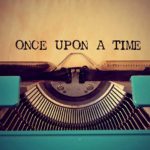As one who writes fiction, you wield the power to make your characters do and say what you want them to do and say, and to create positive and negative situations for them. If you plan your story before you write it, you can create strong characters who react believably.
Creative writing
Creative Writing: How to Harmonize Your Storytelling Skills
We can appreciate the harmony of color in a painting or a beautiful line in a sculptured figure; we can hear the harmony of sound in music or see the harmony of ideas in a story.
How to Build Strong Narrative in Your Article
When subjects excite your curiosity, make a note of it. Draw an image of it. Write a blog post about it. Tweet it. Dream about it at night. Before long, you will have your own prized collection of story ideas.
How to Create a Well-Written Short Story that Engages Readers
To succeed in developing a short story, you need to canvas its environment, not just by your choice and arrangement of words, but also by its series of events. The movement of a short story must progress swiftly from one scene to the next; you must write captivating and snappy dialogue; and you must create characters who are complex yet simple so they are self-explanatory to a degree.
What’s Your Story? How to Find Your Unique Writing Voice
As a writer, you have a literary hero, a blogging deity, or an esteemed wordsmith you look up to and whom you get inspiration from. You are also a byproduct of the things you read, see, experience, and feel. But sometimes, we tend to lose our style in this nest of influences and end up being a voice of sorts
How to Generate Interest in Your Non-fiction Story
Non-fiction writers cannot construct action and episodes to bring out a moral, like a fiction writer can. Learn how to generate interest with these tips.
Plot Development Tip: How to Arouse Desire in Your Fiction Story
Plot development is a key part of the creative writing process. One way to spark interest from your readers is to arouse desire in your fiction story.
How to Avoid Sexist Language in Article Writing
A responsible writer wants to steer clear from sexist language, particularly in non-fiction and business writing, because it is deemed inappropriate. It can alienate one’s readership. When I write I want to gain readers’ trust so I can build credibility and respect.
Make Your Book a Success: How to Hire and Work with an Editor
It is nearly impossible to market and sell a poorly edited book. Whether you contract with a traditional publisher or self-publish, an experienced editor is the key to your book’s success. If you choose the self-publishing route, it’s important to know what to look for.
The Rewrite: Good and Bad Literary Habits of Great Writers
In order to become a better writer, it’s valuable to look the good and bad literary habits of great writers. Learn about the top habits in this article.
Game Writing, a Popular Niche for Freelance Writers
Game writing is different compared to writing a script for a movie, a television show or even a comic book because the latter mediums are all linear in structure. Writing for a video game involves giving gamers who play the games a variety of choices
How to Engage Your Readers with Extraordinary Characters
It isn’t an easy thing, creating characters. It takes patience. You have this story spinning around in your head you want to share; after all, writing a novel is one goal, but getting it published is your ultimate goal.
Finding Plot Ideas for Your Next Fiction or Non-Fiction Story
Learn how you can spot or create plot ideas for your next story by observing what is around you and what you experience in life.
How to Conduct a Creative Writing Class for Children
It seemed fitting that I would teach a Creative Writing Class for Children, a summer program that I designed for motivated children ages eight to thirteen, here in a Big Ten university town. Amazingly, the class is quite effective with the huge age range. And much to my surprise, the oldest kids are not necessarily the best writers
Creative Writing: Method and Mood, Sanity and Insanity
Writers produce the best literary work when under the subtle influence of the mood. You can improve your writing skills by observing its method.
Creative Writing Tips: How to Cultivate a Writing Style of Your Own by Jenny Malone
The primary standard of good writing is clearness of expression. The aim of every writer is to convey his thoughts (including concepts, opinions and emotions) to the reader. For this reason, be careful not to use ambiguous words. Use language that is clear, strong and distinct, or else you will fail in fully conveying your meaning
How to Conduct an Effective Interview for Your Story
As a freelance writer, it is your job to tell a story that readers are willing to spend a few minutes of their day engaged with. To do that effectively, you’ve got to gather data, do a fair amount of research on your topic, create a few visuals to help enhance your story
Brevity is the Soul of Wit in Writing Poetry and Short Stories
You will notice that writers and poets of certain literary magazines have the privilege of writing at length. These days editors of literary magazines (both online and offline) reject poems exceeding eight stanzas. Even though the Internet allows poets and writers to write at length, our writing style has become more condensed for the benefit of readers.
How Freelance Writers Can Build an Idea Bank to Write Interesting Articles
When people ask me where I get ideas for such diverse articles, I tell them that I maintain an idea bank. I always have my little note pad on hand as ideas pop into my brain; this often happens at unexpected times and places. When I get home, I transfer these ideas onto color-coded 3 by 5 inch note cards, one for each magazine that I want to write for
A Writer’s Writing Style: What is it?
A writer’s most prized possession is his or her own unique writing style. Our purpose in writing a story (either fiction or non-fiction) is to trigger certain ideas to emerge in the readers’ minds.
PART 2: CHARACTER DEVELOPMENT SECRETS – 7 STEPS TO DEVELOPING REAL PEOPLE WHO BRING YOUR FICTION TO LIFE
The quality of your characters will form the foundation you desire for a strong story. In this four-part series, we’re looking at ways to develop three-dimensional, dynamic, story driving characters
Children’s Book Publishers – How to Wow Them With a Perfect Query Letter
A query is a business letter asking permission to send the project described. It is either sent without an accompanying manuscript, or with two or three sample chapters (the publisher’s guidelines will state which form the query should take)
A CLOSER LOOK AT CROSS-GENRE ADVENTURE WRITING
The action/adventure genre is most often defined by a protagonist that takes on some sort of heroic quest, where they must prove their own worthiness
Comedy Writing – I’m Funny You Just Lack a Sense of Humor
In humor writing, the first person that has to think something is funny is you. If you don’t think what you’ve written is funny, probably no one else will either. Still, that’s no guarantee others will enjoy your comedy
Comic Book Scripts – Technical Tricks and Troubleshooting
Do you have a story you want to develop as a comic book script? You might think the writing process would be the same as scripting movies, television, or plays, but the medium has very unique needs
Creating a Fantasy Realm
Fantasy is, perhaps, the genre most associated with the untamed imagination. It’s that place of no boundaries, a generic construct out of which you can create
Creative Writing For Analytical Minds
We mean that people with the right kind of minds and the right interests can write interesting poems, stories and plays.
Crime Fiction – Ten Cliches to Avoid
Crime fiction is big business at the moment, but there are certain situations that have been overplayed so much that they have become genre cliches and everybody knows what to expect next. Here are ten cliches you should try to avoid
Develop a Killer Plot
Some writers fly by the seat of their pants, not knowing where they are going or how they will get there, whereas, other writers would never dream of writing a story or a novel without some initial planning
Seven Suggestions To Develop a Superb Writing Style
Every writer eventually develops her own unique style of writing. As you struggle to create your own voice, while focusing on the required standards, you may want to consider the following tips for improving your style and establishing a professional formula for success.
Top 10 Myths About Entering Screenplay Competitions Demystified
We all wonder what really happens when we put our script out there to be judged in a competition. And then we wonder: what if we could just understand the process a little better to make my entry stand out from the heaps of other submissions
How to Avoid the ‘Fatal Coincidence’ When Writing a Screenplay
There are a large number of pitfalls you can make as a screenwriter, but few are as glaring and as easy to avoid as the: Fatal Coincidence
100 Days of Poetry: How to Use the Power of Poetry to Enhance Your Writing and Life
I decided that I wanted to expand and enhance my writing – and my life — by including more poetry in what I write and in how I live. To make this happen, I decided to read and write poetry every day for 100 days
Bring Emotion Into Your Description to Grab Your Reader
Description is what writers use to colour in the basic elements of a story. It gives the reader a mental picture which they can carry that with them as the tale unfolds.
Writing Fiction – Character Creation – 10 Questions to Ask Your Characters
You’re building a character. His name is Eric Cruz. You’ve established his age, his family history, his looks, his profession.
CHARACTER DEVELOPMENT SECRETS – 7 STEPS TO DEVELOPING REAL PEOPLE WHO BRING YOUR FICTION TO LIFE
Creating convincing characters that are believable takes time and discipline. Creating dynamically real individuals without imposing your own thoughts and impressions upon them is not easy to do
Organic Writing – The Garden Within
Who you are as a writer has grown from your life experiences, your passions, your soil. You are fertilizing and weed pulling in your mind’s garden.
How to Pitch Your Story Idea or Script to Hollywood
Have a completed script or story idea you’d like to pitch? The best method is by calling the producers production office.
How to Write a Riveting Romance – Anima/Animus Archetype – Part 2
Every archetype has a positive and a negative side. As we saw in the Three-Dimensional Villains article, the villain is the negative aspect of the shadow, while creativity is the positive.
Screenwriting with Impact: 6 Tips for Vastly Improving Your Scripts
The screenplay you’ve pounded out on your trusty word processor is finished at last! Here are 6 ways you can improve it immediately.
The Crossroads Between the Arts of Writing and Traveling
In Alain de Botton’s book, The Art of Travel, he distinguishes between the anticipation and recollection of travel versus the reality of actually traveling.
Where, Oh Where, Has My Creativity Gone? 5 Steps to Bring it Back
Creativity is the key to every writer’s craft. Without it, we are nothing more than people sitting at desks with paper and pencil, or blank computer screen.
Two Keys to Writing Effective Dialogue
Writers expend a great deal of creative energy developing a story line and limning well-balanced prose with evocative sentences. Here are two helpful tips.
A Powerful Journaling Tool – The Unsent Letter
Putting our thoughts on paper can be a powerful experience – especially so with a journaling tool called Unsent Letters. Read more inside.
A Quick Guide to Manuscript Format
Writing a manuscript? If conflicting advice on format has left you confused, the following tips should help clarify the issues.
Being Creative: The Right-Brain/Left-Brain Myth, and Achieving Flow
The wonderful state in which words just flow from our fingers is caused by certain kinds of brain activation–which means there’s nothing mystical about it.
A Simple Creative Writing Solution: Think Backwards
Here is a neat little trick I have employed all my life in resolving problems, in realizing goals, and finally as a tool for crafting fiction. I call it reverse plotting but it is in effect the act of thinking backwards to arrive at solutions.
5 Steps to Getting Started in Erotica Writing
Ever thought about writing erotica, but don’t know where to begin? Here are a few tips to help get you started on the road to writing bedroom fiction.
6 Continents, 6 Monsters, and 6 Ways to Make a Truly Demonic Horror Story
Horror writing takes many forms. Here are 6 monsters from 6 different continents that you can use to add terror to your horror story.
How to Write a Love Scene
The most critical lesson in writing a love scene is that it is similar to making love in the real world: when done well, it is messy, chaotic and somewhat animalistic.
How to Write an Authentic Martial Arts Scene
Most fight scenes rely heavily upon the vague, and somewhat inaccurate, public perceptions of how martial artists would use their skills in a real fight.
How to Write a Murder Mystery
An author must first and foremost always tell a compelling story, involving, to one extent or another, recognizable three-dimensional characters.
7 Ways to Increase Your Writing Range and Raise Your Income
Here are seven strategies you can use to increase your writing range and boost your income potential in the process.
10 Lessons That Star Trek Can Teach You About Writing
Star Trek has a lot to teach about writing. We’ve taken 10 lessons you can learn from the crew of the Starship Enterprise.
Fiction Writing: The Importance of Novel Beginnings
The beginning of your novel is often the most challenge part to write. Use this article to help you navigate this difficult, but fun, part of your novel.
The Therapeutic Effects Of Writing
For some, writing about their emotional trauma brings emotional release from their pain. But how does it work? Read on inside.
Cut the Crap – How to Avoid the Trap of Crap Content
There are many kinds of crappy content, each with its own unique reasons for being a dull and uninteresting lump rather than a well-polished gem.
How to Make Characters Memorable: Highlight Their Distinctive Characteristics
Readers best remember the characters you create for your novel by focusing in on their mannerisms, habits and traits. Here’s how to write them effectively.
Strange Resources for Writers: Giants, Dwarves, and Monsters as Literary Sources
The world of fantasy creatures is an invaluable resource for fiction writers. This article aims to raise awareness of the literary traditions that exist.
Eleven Unusual Cures for Writer’s Block That Actually Worked
Take a cue from famous and uncelebrated writers alike in adopting one of these unusual cures for writer’s block that do actually work.
How To Teach a Moral In a Short Story
Probably the best and simplest moral that people can get from any story is just the capacity to empathize with others, to care about the characters and their feelings. With that, it becomes apparent that an excessively preachy style is not necessary.
How to Write Powerful, Exciting, and Realistic Battle Scenes
The biggest challenge in writing a battle scene is the point of view. To make the experience exciting and moving, it’s best to stick to the perspective of a single fighter.
The Genesis of Boomer Literature: A Brief History
Why is there the expectation that boomer lit will become a major genre? This is a simple matter of demographics. The same generation that made the success of YA lit will be responsible for the success of boomer lit. In that sense, boomer lit or BB novels are a true
Character Development: Questions for Creating Character Facts and Personalities
Creating a character questionnaire for each major character can lead to richer fiction and greater focus. Following are some sample questions to ask your character. Envision the character sitting in the room with you and telling you about him- or herself.






















